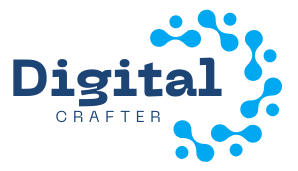In an era where digital automation is revolutionizing industries, the real estate sector is no exception. As we step into 2025, the use of a Real Estate CRM (Customer Relationship Management) system is not just an option—it’s a necessity. These platforms are transforming how real estate professionals manage their contacts, streamline their marketing, and ultimately, close more deals.
So, why should agents and brokers invest in a real estate CRM in 2025? The reasons are many, from improved efficiency and enhanced client relationships to superior lead management and data analytics. Here’s a closer look at the key benefits and features of modern CRMs tailored for the property market.
1. Centralized Communication and Organization
Keeping tabs on emails, texts, calls, appointments, and property showings can be overwhelming without a central hub. A real estate CRM organizes all your client interactions in one place, offering easy access to client history, preferences, and communication timelines. This is especially valuable in today’s fast-moving market, where timely responses can make or break a deal.

Instead of flipping through notebooks or navigating multiple spreadsheets, agents can manage everything from a single, user-friendly dashboard. This enhances productivity and reduces the likelihood of missing out on important follow-ups.
2. Intelligent Lead Management
Leads are the lifeblood of any successful real estate business—but not all leads are created equal. CRMs in 2025 use artificial intelligence to score and prioritize leads, ensuring agents focus their energy on individuals most likely to convert. With automated lead capture from websites, landing pages, and social media, agents no longer need to input data manually.
Advanced CRMs categorize leads based on behavior, demographics, and interactions. This level of data-driven insight helps agents tailor their approach and avoid generic outreach strategies that fall flat.
3. Automated Marketing Campaigns
Digital marketing is a crucial tool for visibility and engagement in real estate. CRMs now come equipped with automated email marketing, SMS campaigns, and social media scheduling. Agents can pre-plan entire campaigns to nurture new leads and re-engage past clients without lifting a finger daily.
This automation saves time, and perhaps more importantly, ensures that clients receive timely and relevant information based on their buying or selling journey. Modern CRMs also track campaign performance with real-time analytics, helping users refine their strategies for better results.

4. Seamless Integration with Real Estate Tools
A powerful CRM doesn’t work in isolation. In 2025, top real estate CRMs integrate seamlessly with MLS listings, e-signature tools, calendar apps, and accounting software. This connectivity creates a smooth workflow, eliminating the friction caused by manual data transfers between systems.
Such integration allows for faster document processing, better transaction management, and a more professional client experience from start to finish.
5. Enhanced Client Experience
At the end of the day, client satisfaction is what grows a realtor’s reputation and referrals. A real estate CRM helps agents respond quickly, remember client preferences, and offer a personalized experience—key ingredients for trust and loyalty.
Clients benefit from consistent communication and support, whether they’re just browsing or ready to close. With features like shared property portals, appointment reminders, and feedback collection, CRMs greatly enhance the overall buying or selling experience.
FAQ: Real Estate CRMs in 2025
- Q: Are real estate CRMs suitable for solo agents?
A: Absolutely. Most CRMs offer scalable plans that cater to individual agents, providing tools that help them compete with larger teams. - Q: How much does a quality real estate CRM cost in 2025?
A: Prices range from $30 to $300 per month depending on the features, number of users, and integrations offered by the platform. - Q: Is training required to use a real estate CRM?
A: Many CRMs offer intuitive interfaces and built-in tutorials. However, providers often include live training and support to speed up user onboarding and adoption. - Q: What if I already use spreadsheets and email marketing tools?
A: CRMs consolidate those tools into a single platform. You’ll save time, reduce errors, and gain deeper insights through analytics and automation. - Q: Can CRMs help with compliance and data security?
A: Yes. Most modern CRMs are compliant with GDPR and other data regulations, offering encrypted storage and permission-based access.
In conclusion, a real estate CRM is more than just a contact manager—it’s a full-service assistant that works 24/7 to help agents stay organized, strategic, and successful. As the market grows more competitive and client expectations rise, adopting a CRM in 2025 is no longer optional—it’s essential.
